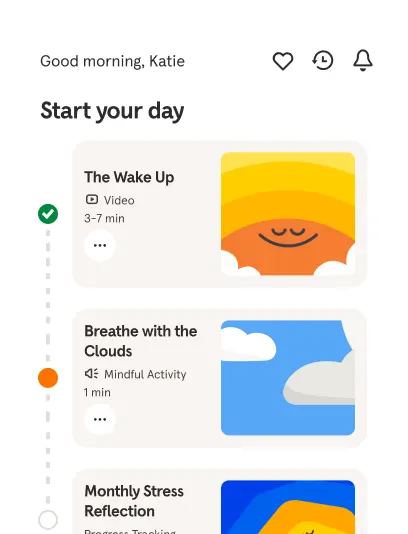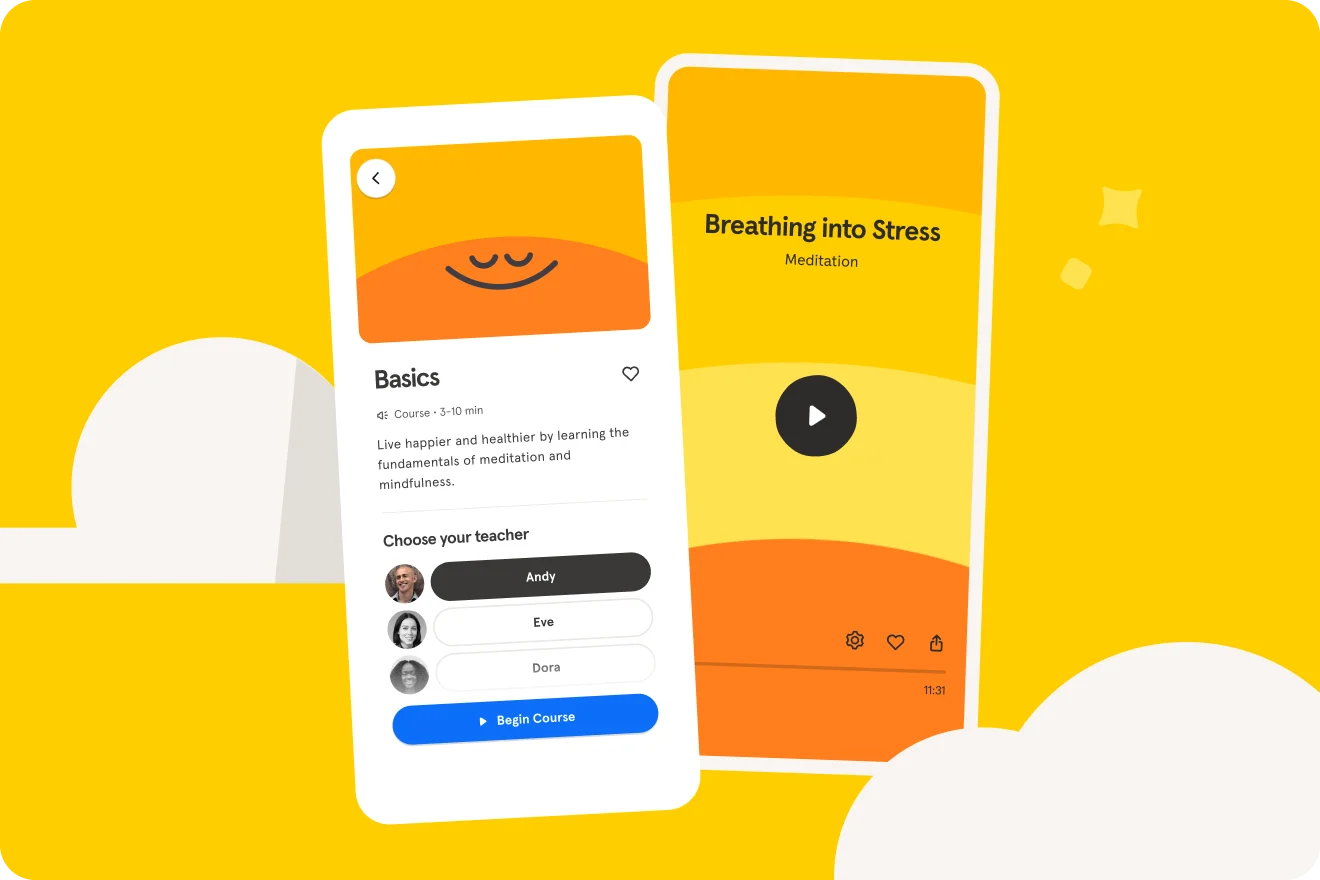Move Your Mind
From The Wake Up: Neuroscience researcher Dr. Yewande Pearse explains how exercise is one of the best ways to promote the generation of new neurons in the brain.
Try 14 days freeBetter mental health starts with Headspace. Unrivaled expertise to make life feel a little easier, using guided meditations, mindfulness tips, focus tools, sleep support, and dedicated programs.
Try 14 days free
Now, you probably know that exercise benefits your body in many different ways, from strengthening your muscles to losing weight. You also may have found working out to be a great activity to improve your mood, but working out benefits us in another lesser-known way. Exercise has been found to promote the growth of new cells in our brains. (upbeat lively music) I'm Dr. Yewande Pearse, a Neuroscience Researcher, who studies the many different functions of the brain. It used to be commonly thought that we're born with a finite number of cells in our brain, but fairly recently, studies have found that our brains, actually, have the ability to create new neurons throughout our lives, through a process called neurogenesis. Now, there are still a number of things we still don't know about this process because we can't exactly peek into a healthy living person's brain, but thanks to a number studies in mice, which are remarkably similar to humans in terms of brain development, a direct relationship between physical activity and neurogenesis has been found. Today, we'll be talking more about the fascinating ways exercise is good for our minds. It's worth noting that there are a number of environmental factors that have been found to impact neurogenesis in both positive and negative ways. Learning, exercise, and a healthy diet, have all been linked to neurogenesis. Inversely, things like stress, sleep deprivation, and a poor diet have been found to lead to a decline in neurogenic activity. But in terms of being easily accessible and free, exercise is one of the best ways you can promote the creation of neurons in the brain. Exercise is also a great way to increase activity throughout the brain, which triggers the formation of new connections. This is also extremely important, because new neurons on their own are fairly useless until they get woven into your brain's inner circuitry. Recent studies have found that these new neurons are mostly found in a part of the brain called the hippocampus, which is responsible for helping us learn and remember new things. It also plays a big role in regulating our emotions. One of the first studies looking at the impact of exercise on adult neurogenesis, showed that mice who had a wheel in their cage, had significant more neurons than mice that did not. Since then, hippocampal neurogenesis in rodents, as a function of exercise, has been extensively demonstrated and replicated. Is estimated that we produce around 700 new neurons in this area a day. So, by the time we are 50, all the cells in our hippocampus have been fully replaced. This is great news because a number of neurodegenerative diseases that affect our memory like Alzheimer's or dementia, are related to a natural decline in the hippocampus as we age. Interestingly, studies have also shown, that using drugs to replicate the physiological changes triggered by exercise, first improve our memory in the same way. Because this field of research is still...
Details
About your teachers
- More about Andy
A former Buddhist monk, Andy has guided people in meditation and mindfulness for 20 years. In his mission to make these practices accessible to all, he co-created the Headspace app in 2010.
- More about Eve
Eve is a mindfulness teacher, overseeing Headspace’s meditation curriculum. She is passionate about sharing meditation to help others feel less stressed and experience more compassion in their lives.
- More about Dora
As a meditation teacher, Dora encourages others to live, breathe, and be with the fullness of their experiences. She loves meditation’s power to create community and bring clarity to people’s minds.
- More about Kessonga
Kessonga has been an acupuncturists, therapist, and meditation teacher, working to bring mindfulness to the diverse populations of the world.
- More about Rosie
Rosie Acosta has studied yoga and mindfulness for more than 20 years and taught for over a decade. Rosie’s mission is to help others overcome adversity and experience radical love.

Your lifelong guide to better mental health
Stress, sleep, and all the challenging emotions — care for your mind with the everyday mental health app that's shown to make a difference.
Try 14 days free
Look after your mind
Proven guided meditations and programs to help you stress less, sleep more soundly, and better navigate life’s challenges

Science-backed
Studies show that using Headspace for 30 days can reduce stress, increase resilience, and improve overall well-being

Explore 1000+ expert-led exercises
Access our library of meditations, breathing exercises, and guidance videos for stress, sleep, focus, everyday anxiety , parenting, and more.
Member reviews
Hear from some of our members
Your app brings so much peace and tolerance to our home.
Rachel
UK
Changing my thoughts has allowed me to change my life.
Davide
London
The stress and loneliness courses … taught me how to comfort myself.
Alicia
Canada
Headspace provides me with … a connection to myself, and a disconnection from negative thoughts, feelings, and sensations.
Keri
UK
- © 2024 Headspace Inc.
- Terms & conditions
- Privacy policy
- Consumer Health Data
- Your privacy choices
- CA Privacy Notice

